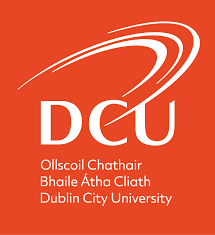
Dublin City University was founded in 1981 and is consistently ranked among the top young universities globally. DCU is a research-intensive university with modern campuses located in Drumcondra and Glasnevin (20-30 min from Dublin city centre), which provides office spaces, library, laboratories with dedicated equipment and other support services (e.g. restaurants, student accommodation, sports facilities etc.). The campuses are active and rewarding, full of student life, sports and leisure facilities. With the city just a 10-minute bus drive away, students of DCU have the best of both worlds; the social and cultural benefits of city life, but with the security and vibrancy of a university campus built very much for today. Dublin City University (DCU) has grown rapidly in scale and performance since being established as a university in 1989. In 2016, DCU incorporated with the former St. Patrick’s College, Church of Ireland College of Education, Mater Dei Institute of Education and St Patrick’s College. The expanded DCU has the first Faculty of Education in Ireland, along with four other faculties: Science and Health, Humanities and Social Sciences, Engineering and Computing, and DCU Business School. DCU now has a student population of more than 17,000 students, including 3,000 students from 122 other countries. DCU prides itself on delivering excellence across all of its activities and is recognised as acentre of academic excellence in education and research. DCU has forged a reputation as Ireland’s University of Enterprise, through its strong, active links with academic, research and industry partners both at home and overseas. Unconventional by nature, DCU broke with the traditional mould and introduced new approaches into the Irish education system. As the first university in Ireland to introduce work placements (Intra) as part of its degree programmes, DCU’s focus is not solely on academic learning: students get the opportunity to spend time in real-world professional environments as part of their studies, and they also get to work with innovators on their own ideas, setting up enterprises and exploring their own social and commercial ideas.
The Institute of Education comprises the largest critical mass of education expertise in Europe, spanning the full education continuum from Early Childhood through Primary and Second Level to Third and Fourth Level. The Institute has a staff of more than 125 full-time academics and a student body in excess of 4,000. As well as providing a range of undergraduate programmes in education, the Institute offers a rich menu of taught and research-based post-graduate programmes, at doctoral, masters, diploma and certificate levels.
As a centre of expertise and excellence in teacher education and education more generally, DCU hosts a range of research centres in key areas of priority and has an ambitious programme of research across education. The Centre for Evaluation, Quality and Inspection (EQI; https://www.dcu.ie/ceqie/index.shtml) is one such research centre which has created an unrivalled research, publication and school support reputation over the last two decades. EQI is a multidisciplinary research group examining the impact of evaluation and inspection in education and related fields. With a focus on quality and school support, EQI has worked with many school leaders for school improvement in varied fields. The project, Distributed Evaluation of Networked Schools (ICEP) is in alignment with DCU’s Strategic Plan in terms of bringing quality research to questions that are significant to the quality of educational provision and significant for the educational community. The Institute of Education in DCU is supported in the application and management phase of research projects by Research and Innovation Support (RIS). This unit has two constituent units which support the research and innovation activities of our academic and research staff and collaborative partners. They are the Research Support Unit and Innovation Support Unit (Invent), which along with Finance and Human Resources, provide support in the management of grants and offer advice on the organization, dissemination, negotiation, evaluation and monitoring of research activities. The Finance Office provides support on budgets, accounts for the receipts and payments of the University and all its departments and subsidiaries, manages payroll matters, student fee processing, advises on University income and expenditure trends, co-ordinates procurement, manages financial audits. [/su_spoiler]
